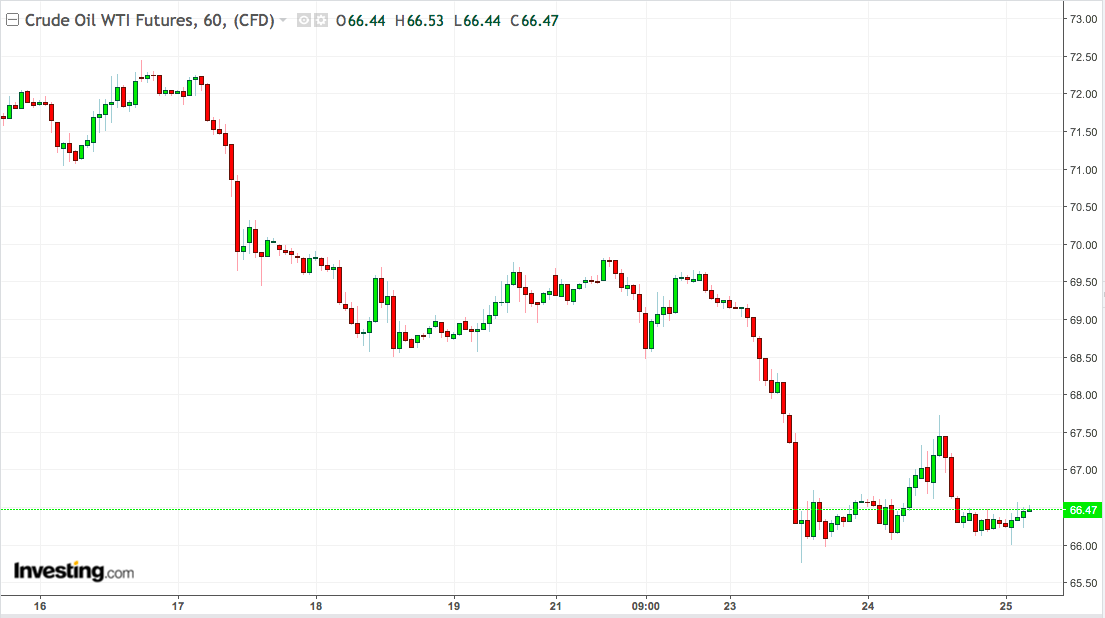Just a few weeks ago, the price of Brent crude broke the $85 mark and markets were talking about the possibility of $100 a barrel oil. Now, traders and analysts appear to have changed their tune.
Oil prices fell early in the week on news of an anticipated build in crude oil stocks in the US and generally weaker global economic outlook for 2019. On Tuesday, WTI fell 4% and Brent lost 4.3%. This seems like a necessary correction after oil prices reached highs not seen in four years earlier this month.

The market is also toning down its expectations for the Iranian oil sanctions that will take effect November 4. Tracking information from various sources, including ClipperData and TankerTrackers, shows that exports from Iran have continued at higher than expected rates in October. Saudi oil minister Khalid al-Falih reiterated that Saudi Arabia plans to increase production to meet any customer demand that is not met due to declining exports from Iran. He described OPEC’s current position as “produce as much as you can.” Russia and Libya also announced production increases this week.
Uncertainty surrounding the Iran sanctions, particularly from China, will continue to impact the market. For months, it has been assumed that China will continue to import Iranian oil at a steady rate, even after sanctions take effect. China is currently the largest importer of Iranian oil. However, recent news has complicated that assumption. Reuters reported that both Sinopec and CNPC are hesitating to place orders for Iranian oil for November pending news of possible sanctions waivers ahead of November 4.
In addition, Bank of Kunlun announced that it would no longer process yuan payments for Iranian oil due to the coming sanctions. This helped push Brent up slightly in futures trading on Wednesday. Bank of Kunlun’s announcement is significant because it was the primary method for China to evade US sanctions on purchases of Iranian oil during the previous round of sanctions. The US did sanction Bank of Kunlun for its role in facilitating purchases of Iranian oil but because the bank had no exposure to the US financial system, the sanctions had no effect.
If oil prices continue to trend downwards instead of upwards, it is possible that analysts will reconsider their economic forecasts for 2019. Cheaper oil can often spur economic growth. If OPEC continues its current production policy through mid-2019 and if Saudi Arabia, Russia and the United States can deliver on promises of higher oil production, then the global economic outlook could pick up.
